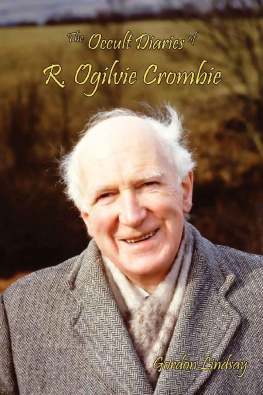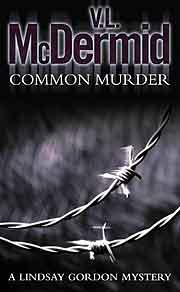Gordon Lindsay - John G. Lake - Apostle to Africa (Pentecostal Pioneers)
Here you can read online Gordon Lindsay - John G. Lake - Apostle to Africa (Pentecostal Pioneers) full text of the book (entire story) in english for free. Download pdf and epub, get meaning, cover and reviews about this ebook. year: 2014, publisher: Revival Library, genre: Religion. Description of the work, (preface) as well as reviews are available. Best literature library LitArk.com created for fans of good reading and offers a wide selection of genres:
Romance novel
Science fiction
Adventure
Detective
Science
History
Home and family
Prose
Art
Politics
Computer
Non-fiction
Religion
Business
Children
Humor
Choose a favorite category and find really read worthwhile books. Enjoy immersion in the world of imagination, feel the emotions of the characters or learn something new for yourself, make an fascinating discovery.

- Book:John G. Lake - Apostle to Africa (Pentecostal Pioneers)
- Author:
- Publisher:Revival Library
- Genre:
- Year:2014
- Rating:3 / 5
- Favourites:Add to favourites
- Your mark:
- 60
- 1
- 2
- 3
- 4
- 5
John G. Lake - Apostle to Africa (Pentecostal Pioneers): summary, description and annotation
We offer to read an annotation, description, summary or preface (depends on what the author of the book "John G. Lake - Apostle to Africa (Pentecostal Pioneers)" wrote himself). If you haven't found the necessary information about the book — write in the comments, we will try to find it.
John G. Lake - Apostle to Africa (Pentecostal Pioneers) — read online for free the complete book (whole text) full work
Below is the text of the book, divided by pages. System saving the place of the last page read, allows you to conveniently read the book "John G. Lake - Apostle to Africa (Pentecostal Pioneers)" online for free, without having to search again every time where you left off. Put a bookmark, and you can go to the page where you finished reading at any time.
Font size:
Interval:
Bookmark:
by
Gordon Lindsay
Pentecostal Pioneers Series
No. 17
Published by The Revival Library
www.revival-library.org
In the US books that were published before 1923 are in the public domain.
Books that were published from 1923 to 1963 were required to have a copyright notice or symbol in the book to be granted copyright protection for a term of 28 years. This renewal could be extended for a further 47 years by registering with the Library of Congress Copyright Office. Failure to comply with this required formality automatically placed the book in the public domain.
For a book published from 1964 to 1977 the rules above still apply - the book was copyrighted for 28 years for the first term except that automatic extension was increased to 67 years for second term if registered with the Library of Congress Copyright Office. Similarly, failure to comply with this statutory requirement placed the book in the public domain.
These copyright terms can be viewed online here http://copyright.cornell.edu/resources/publicdomain.cfm and here http://www.unc.edu/~unclng/public-d.htm
For books registered or re-registered before 1978, scanned copies of the Catalog of Copyright Entries can be searched at this web address http://books.google.com/googlebooks/copyrightsearch.html
Foreword
Personal Memories
Chapter I. Lake's Call to the Healing Ministry
Chapter II. How God Sent John G. Lake to Africa
Chapter III. Historic Revival in South Africa
Chapter IV. Remarkable Events in the Ministry of John G. Lake
Chapter V. Elias Letwaba, the Man Who Carried on the Work
Chapter VI. The Mantle Falls on Letwaba
Chapter VII. The Return to America
Dr John G Lake Apostle to Africa
In evaluating the greatness of a missionarys ministry, what factors are involved? Is it the length of time of service? If this were the case, then of course the name John G. Lake must be ruled out, for he was in Africa only about five years and part of that time he was away from the continent. But we must remember that Jesus was the greatest of all missionaries, and His labours were transcendent of all; yet He was actively engaged in ministry for only about three years.
There are men who have founded great mission boards that have been used of God to send out hundreds of missionaries. Such work, though of great significance to missions is not to be confused with the actual ministry of the missionary. John G. Lake was not an organizer; he was not an explorer as Livingstone; nor did he raise huge sums for missions. But if we consider the work of the missionary itself, and the degree of success of the methods employed to get the Gospel quickly to vast numbers of the unsaved in foreign fields, or if we measure the power of a missionarys ministry by its effectiveness to change the lives of those who come in contact with it, or still again, if we compare the methods used by the missionary with those of Paul and the apostles, then the ministry of John G. Lake must stand favorably with all others as the nearest to apostolic ideals.
Let us for a moment consider the phenomenon of Lakes ministry in South Africa. He went there without funds. Every mile of the journey was a miracle. Having been a successful businessman, Dr Lake had the means by which he could have financed his party for several years, but at the time of his call he liquidated his estate and arranged for the disposal of his goods. He depended upon God to supply the money for the trip, and he and his party upon arriving in Africa were without visible means of support. There was no organization nor mission board to back him. From, the natural viewpoint, the venture was a perfect setup for failure or perhaps disaster.
Dr Lake had made no particular study of the field, did not know the language of the natives. Yet despite all the handicaps that ill-omened the success of the mission, the power of the ministry of Lake and his co-worker Hezmelhalch was such that within five years the message they brought had penetrated to the remote areas of South Africa. An apostolic revival broke out of such power that in a short time hundreds of churches and missions were established throughout the land. The secret of the success of these men was of course the fact that they possessed an apostolic ministry in which signs, wonders, and miracles were manifested continually.
Yet Satan struck a blow at even so great a ministry. While Lake was gone on a mission, his wife was struck down in death, leaving him the sole care of the large family of children. Mrs Lakes great faith in God, her keen judgment, and the deep spiritual tone of her life had made her an ideal helpmate. Her loss necessitated Dr Lakes return to the states in the year 1913.
But the Lord had other work for the man of God to do. Back in America, God gave him another able and consecrated companion, Miss Florence Switzer, and shortly after their marriage, they took residence in Spokane, Washington. There in that city they founded a healing mission that made history. The enterprise succeeded to the extent that in five years time nearly 100,000 healings were recorded. The effects of Dr Lakes ministry as time goes on will no doubt be felt by those of generations to come, who will be quite unaware of their source.
John Graham Lake was born at St. Marys, Ontario, Canada, on March 18, 1870. When yet a small boy, he accompanied his parents to the United States, settling at Sault Sainte Marie, a city in northern Michigan. In October, 1891, he was admitted into the Methodist ministry at Chicago and was appointed to a church at Peshtigo, Wisconsin. However he finally decided against going there and went instead into the newspaper business. In the town of Harvey, Illinois, he founded the Harvey Citizen. Incidentally that town was named after D. L. Moodys brother-in-law.
In February, 1893, he married Miss Jennie Stevens of Newberry, Michigan. Three years later she was pronounced incurable of consumption by several well-known physicians who had given her the best treatment possible. They advised taking her north. On that advice Lake took her back to Sault Sainte Marie, Michigan. Two years later on April 28, 1898 she was instantly healed under the ministry of John Alexander Dowie, a story which is told later in this book.
While staying in Sault Sainte Marie, Dr Lake opened a real estate office and took up the business of selling real estate. As a salesman and contractor he remained there until 1901. During this time he helped found the Soo Times. In 1904 he moved to Chicago and bought a seat on the Chicago Board of Trade. At this time he handled Jim Hills Western Canadian land and made a personal friend of this great railroad man and financier.
The first day Lake opened his office he made $2500 on a real estate deal, and at the end of one year and nine months he had $100,000 in the bank, real estate amounting to $90,000 and also a $30,000 paid up life insurance policy. Representing the Chicago Board of Trade he met Harriman and Ryan and others who were celebrated financiers. He was employed by Ryan to form a trust of three of the nations largest insurance companies. Appointed manager of agencies he was offered by the company a guarantee of $50,000 a year to continue in this business. It was at this point, however, that God began to deal with him in such a way that the course of his life was definitely altered. For a time he continued his work in the day hours, but at night he preached and carried on a ministry of healing.
Font size:
Interval:
Bookmark:
Similar books «John G. Lake - Apostle to Africa (Pentecostal Pioneers)»
Look at similar books to John G. Lake - Apostle to Africa (Pentecostal Pioneers). We have selected literature similar in name and meaning in the hope of providing readers with more options to find new, interesting, not yet read works.
Discussion, reviews of the book John G. Lake - Apostle to Africa (Pentecostal Pioneers) and just readers' own opinions. Leave your comments, write what you think about the work, its meaning or the main characters. Specify what exactly you liked and what you didn't like, and why you think so.




